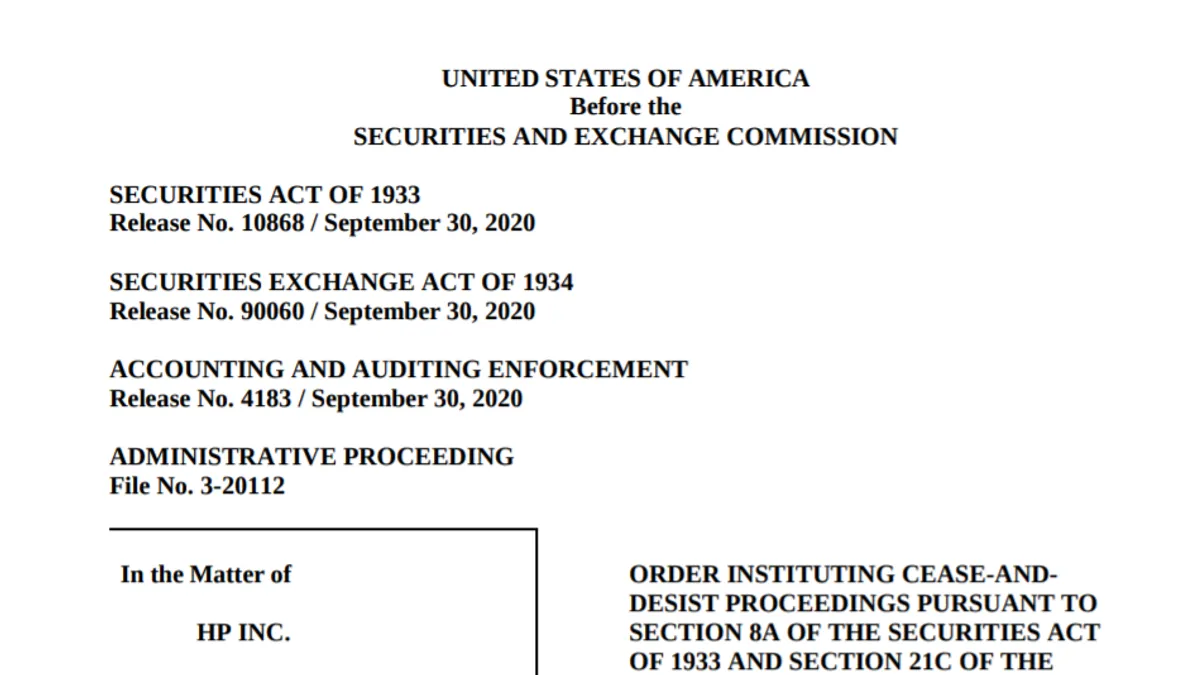Dive Brief:
- The Securities and Exchange Commission (SEC) has announced charges against tech company Hewlett-Packard for misleading investors by failing to disclose the impact of sales practices undertaken to meet quarterly sales and earnings targets.
- HP has agreed to pay $6 million to settle the charges.
- From early 2015 through mid-2016, the SEC alleges, regional managers used incentives to accelerate, or "pull-in" to the current quarter, printing supplies sales they otherwise expected to materialize in later quarters.
Dive Insight:
In its order, the SEC says managers in one HP region sold printing supplies at substantial discounts to resellers known to sell HP products outside of the resellers' designated territories, in violation of HP policy and distributor agreements.
Additionally, HP failed to disclose known trends and uncertainties associated with these sales practices, and failed to disclose its internal channel inventory ranges, which it described in quarterly earnings calls, included only channel inventory held by channel partners, to which HP sold directly, and not by channel partners further down the distribution chain.
By failing to include the latter channel partners, HP disclosed an incomplete picture of its channel health.
HP later changed its go-to-market model in part to address these undisclosed sales practices, and undertook a channel inventory reduction that reduced its net revenue by approximately $450 million during the third and fourth quarters of 2016.
"Investors are entitled to accurate disclosures of business trends that are likely to have a material impact on a company's future revenues or operating profits," Melissa Hodgman, associate director in the SEC's enforcement division, said. "HP’s failure to disclose the foreseeable negative impact of its use of pull-ins and other sales practices created a misleading and incomplete picture of the company’s financial condition."
The company is charged with violating antifraud, reporting and disclosure controls provisions of federal securities laws. Without admitting or denying the SEC's findings, HP consented to a cease-and-desist order and to pay a $6 million penalty.














